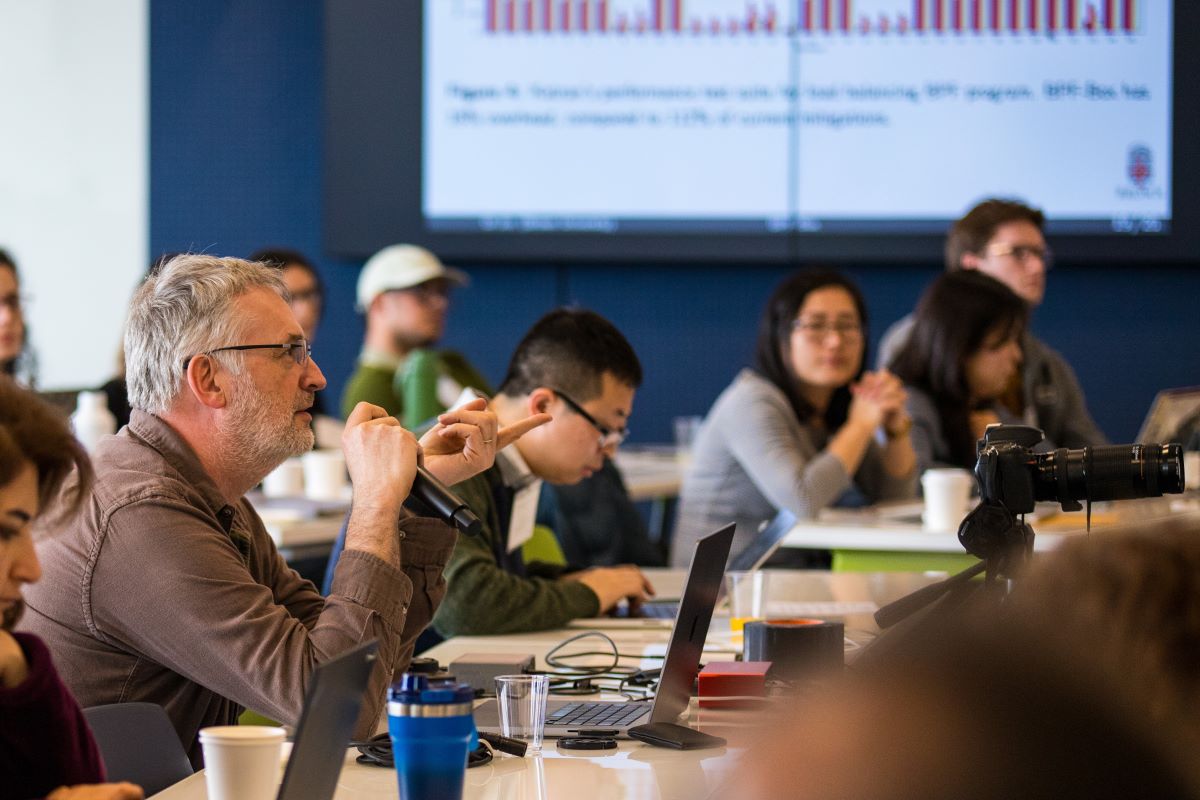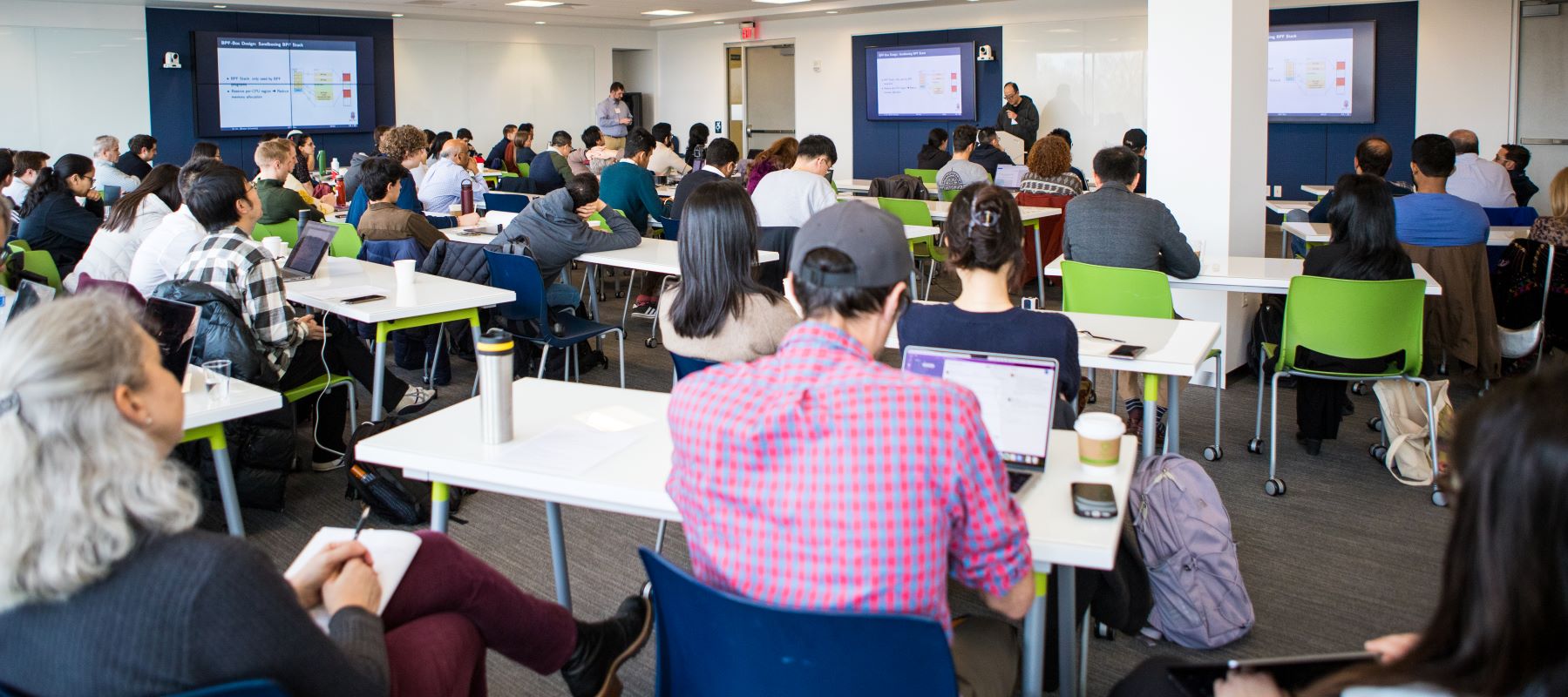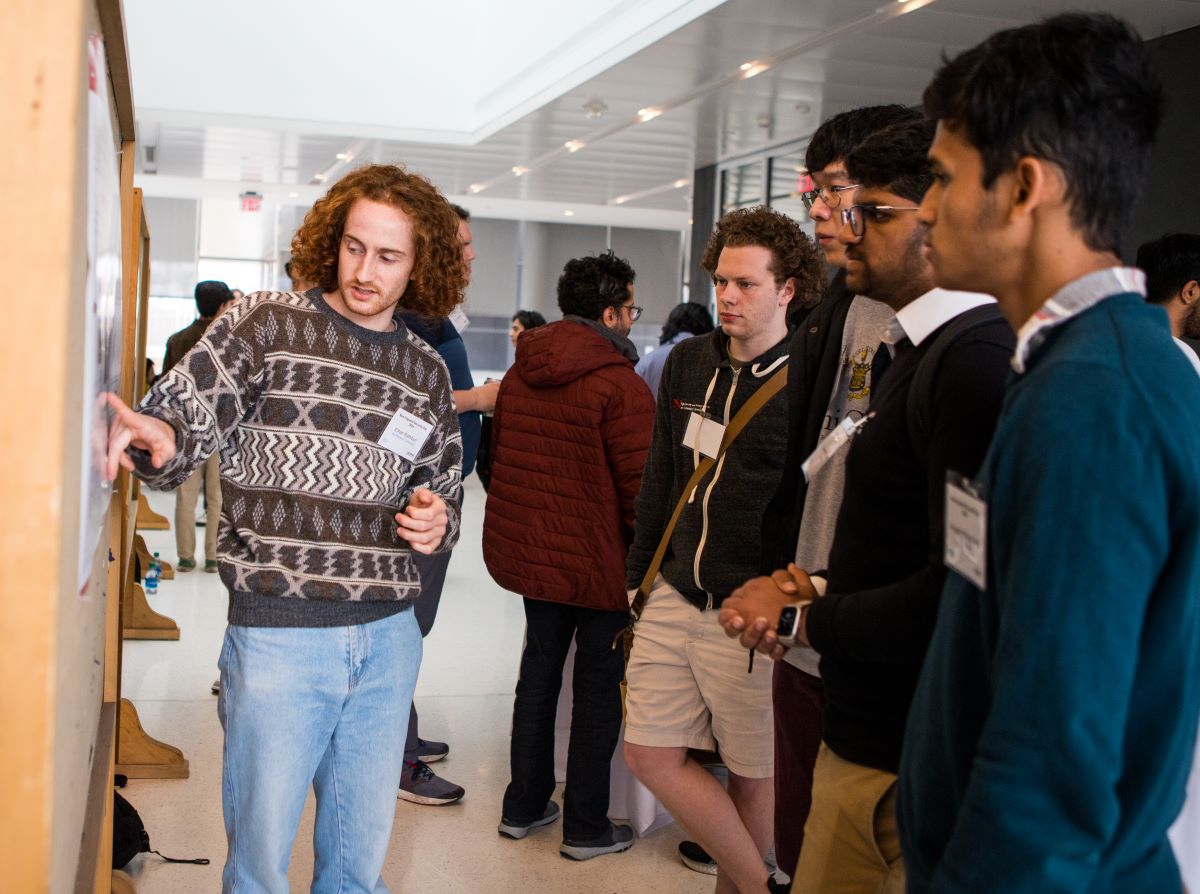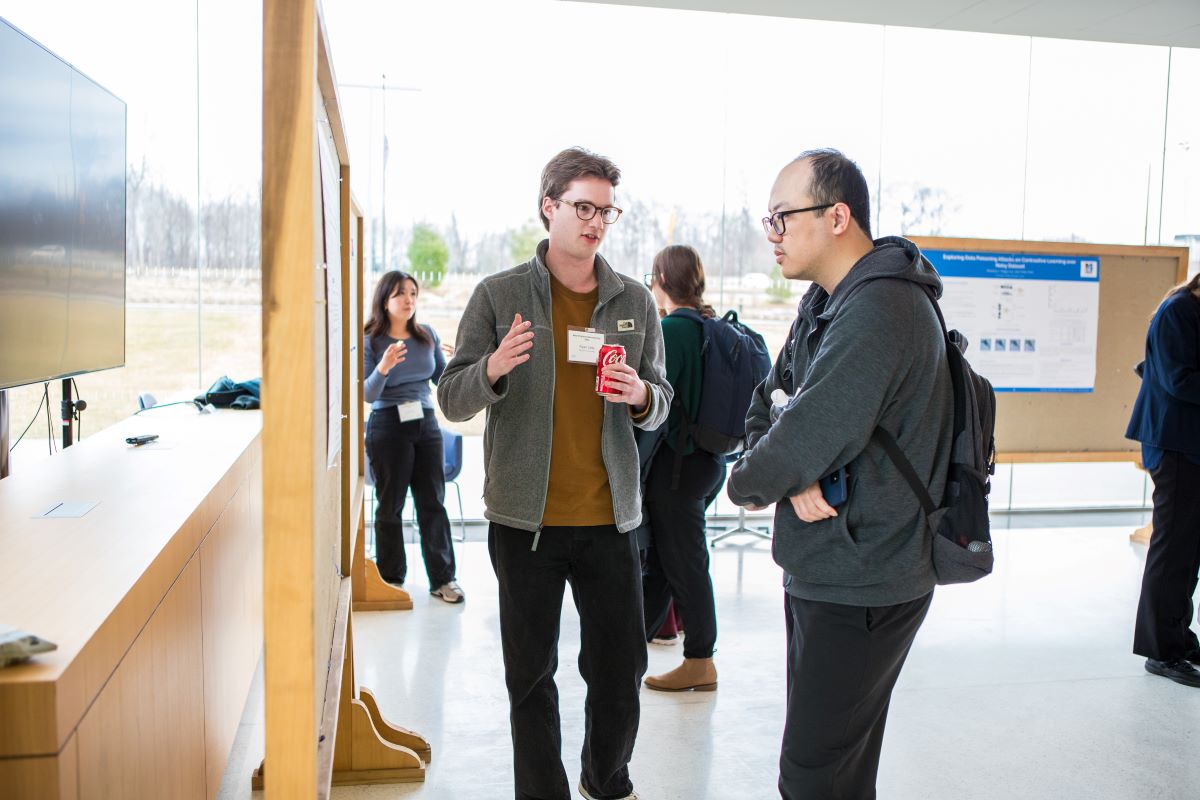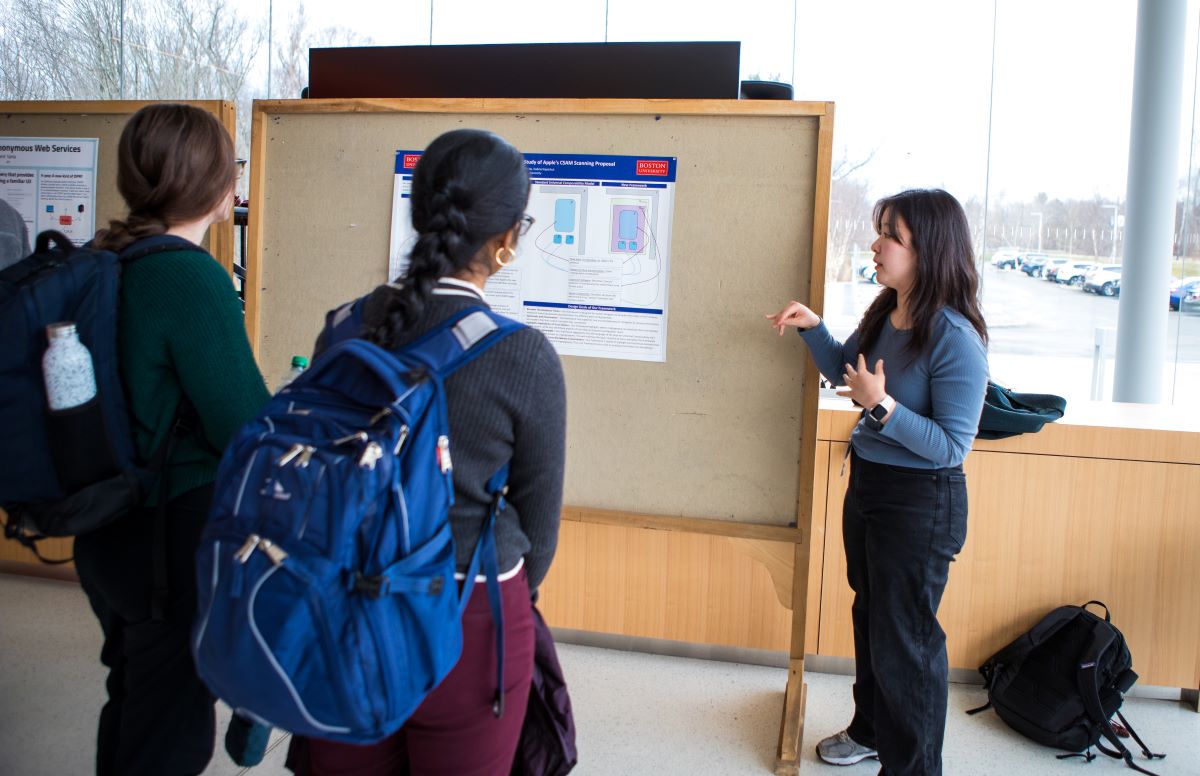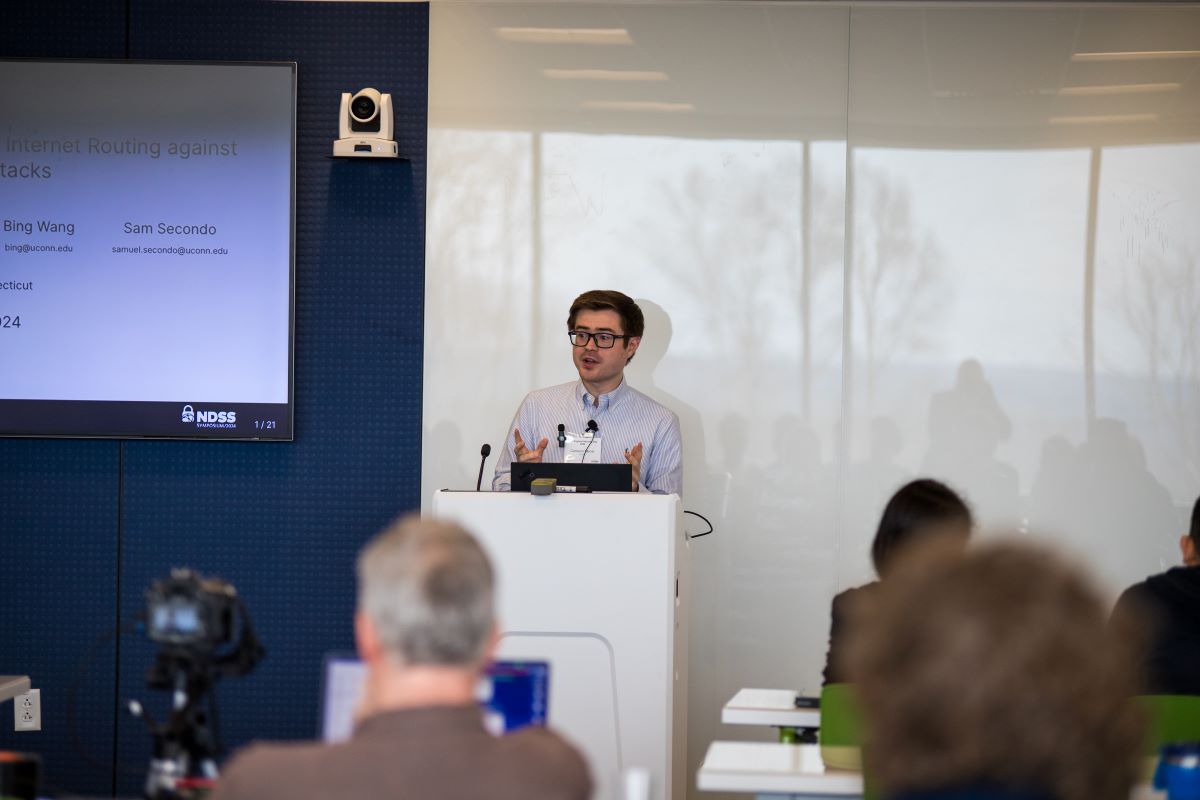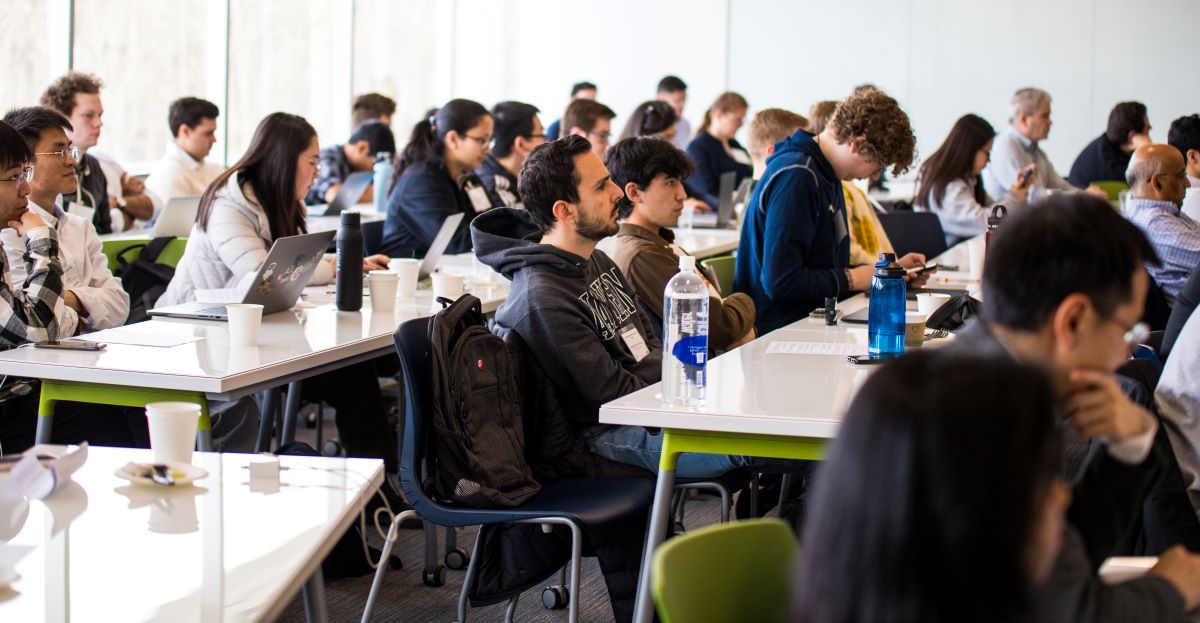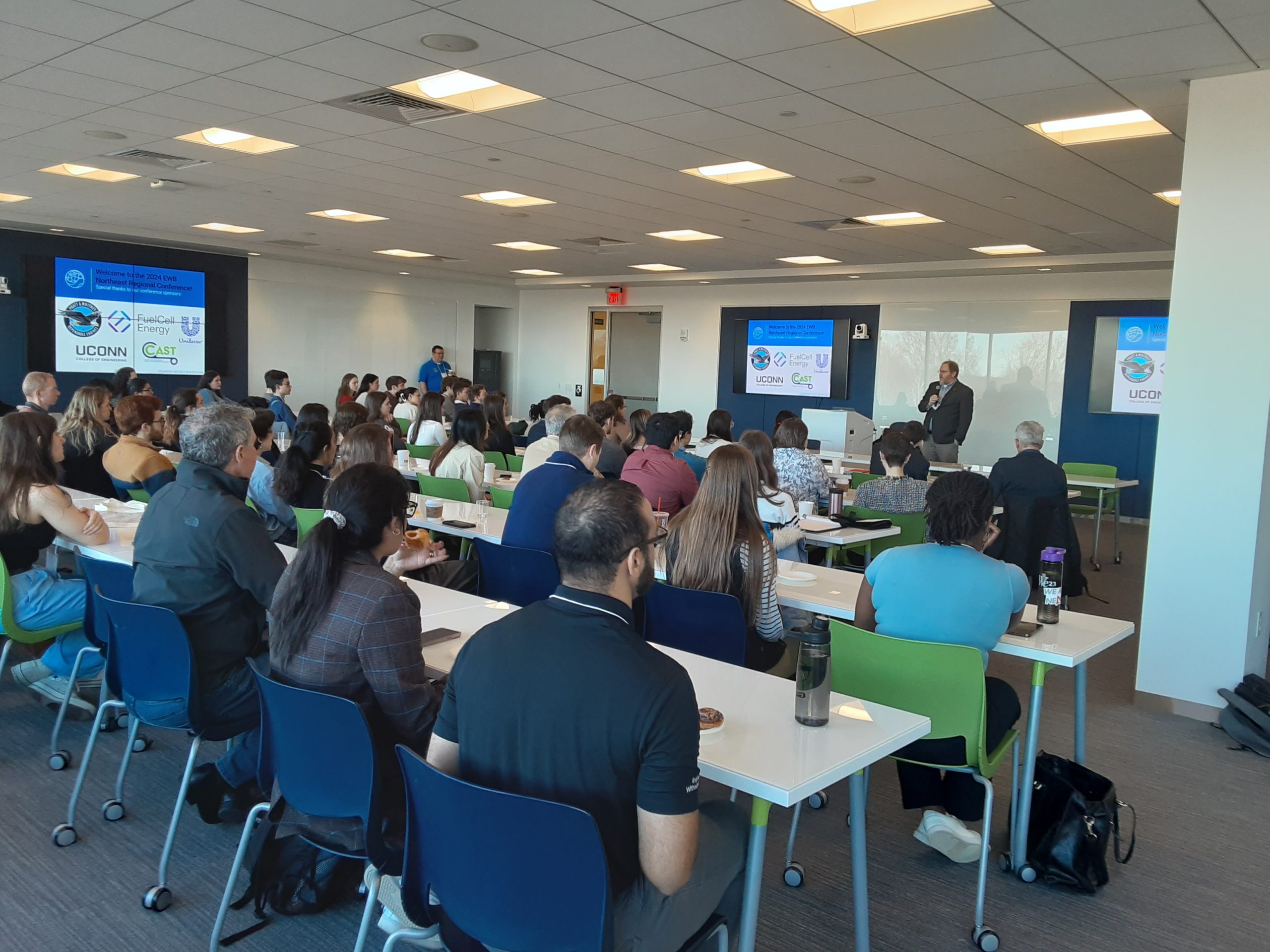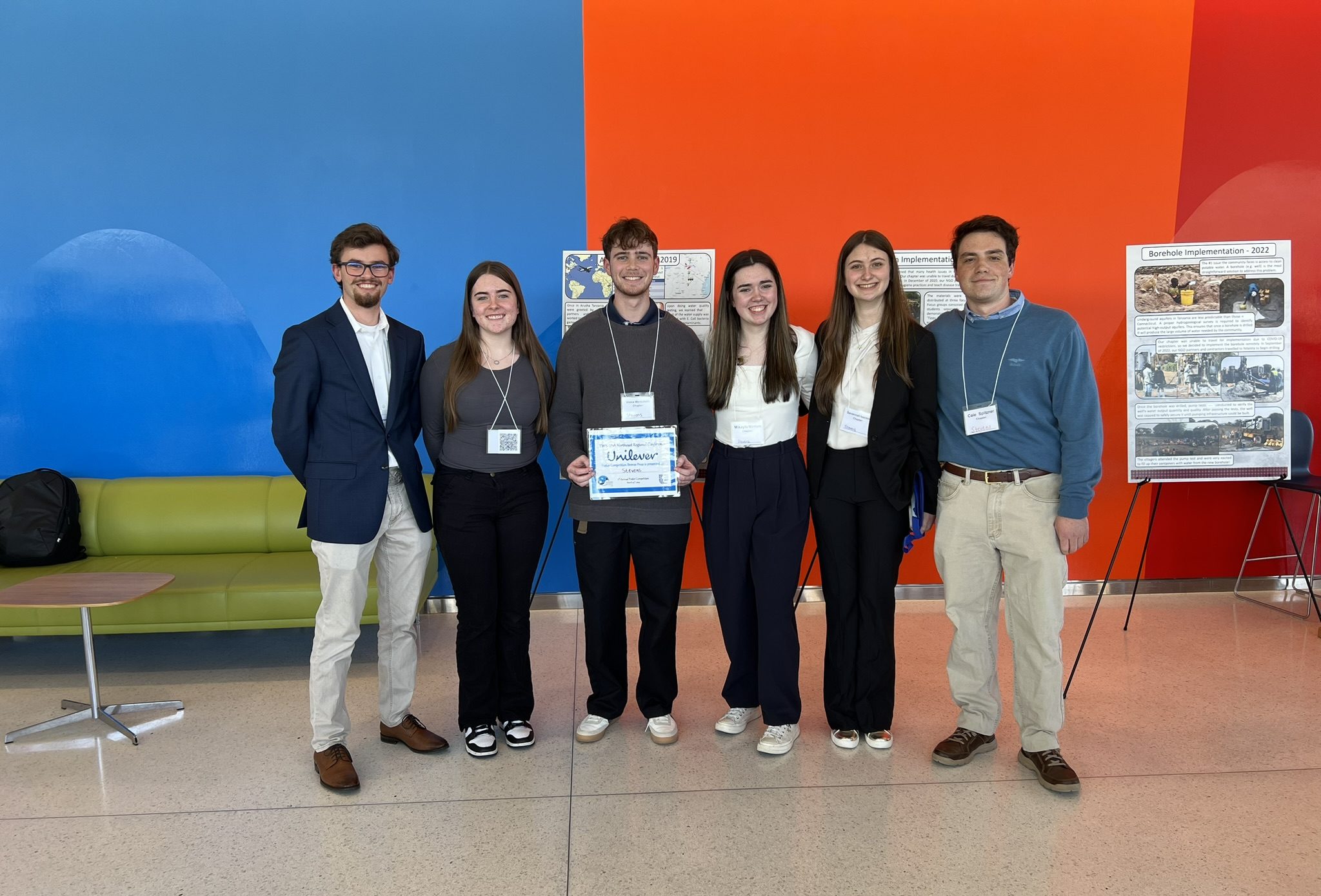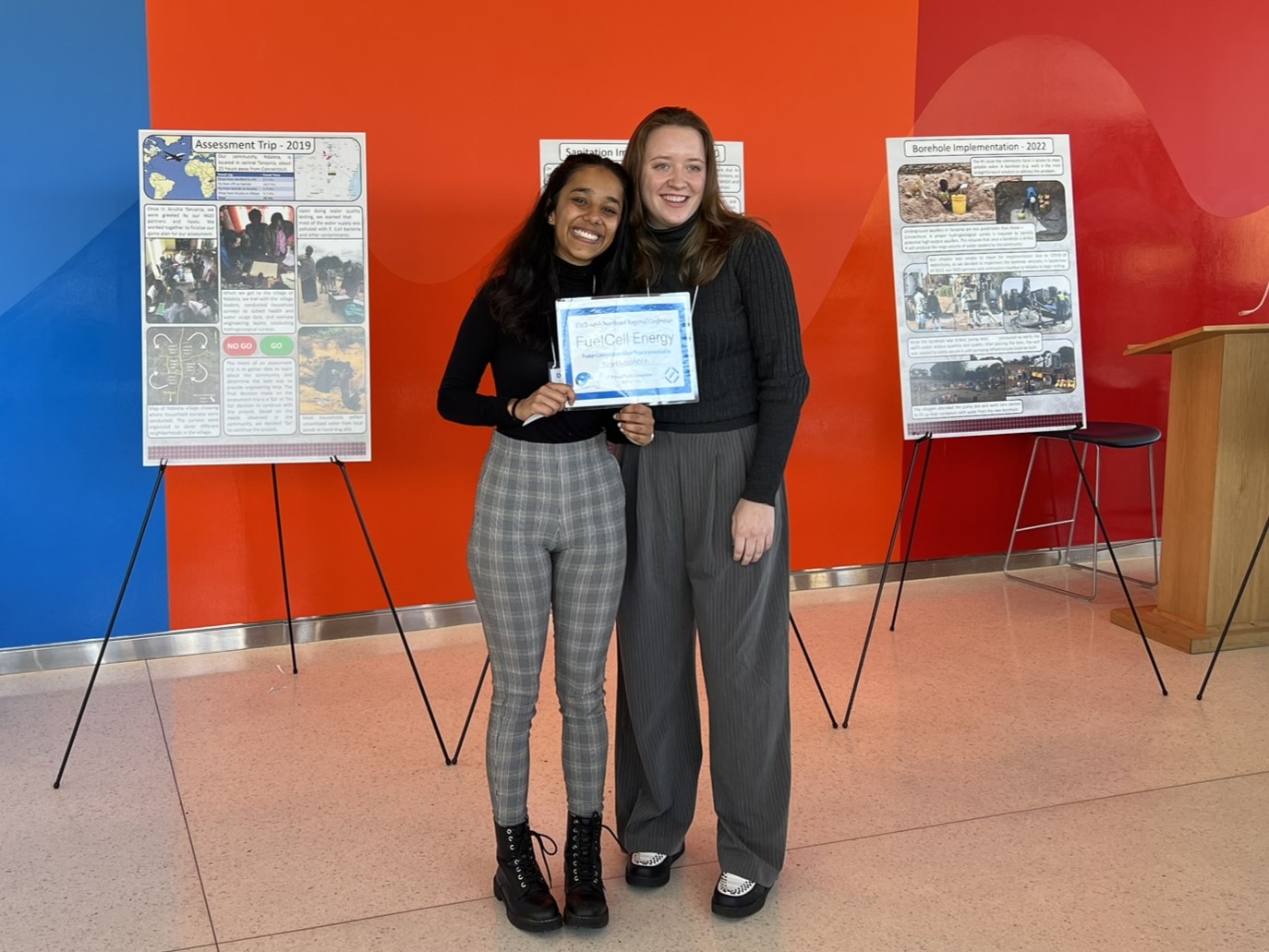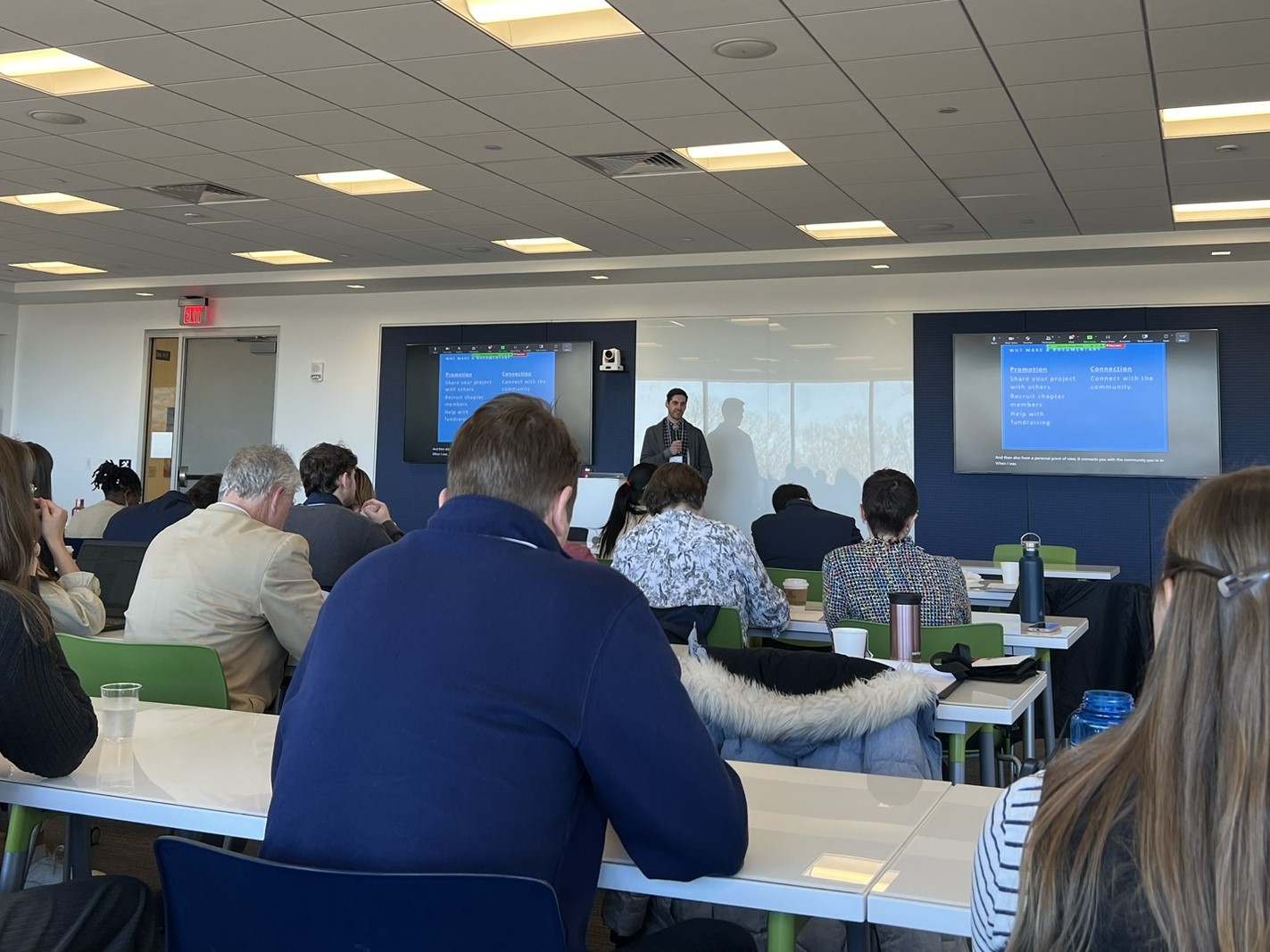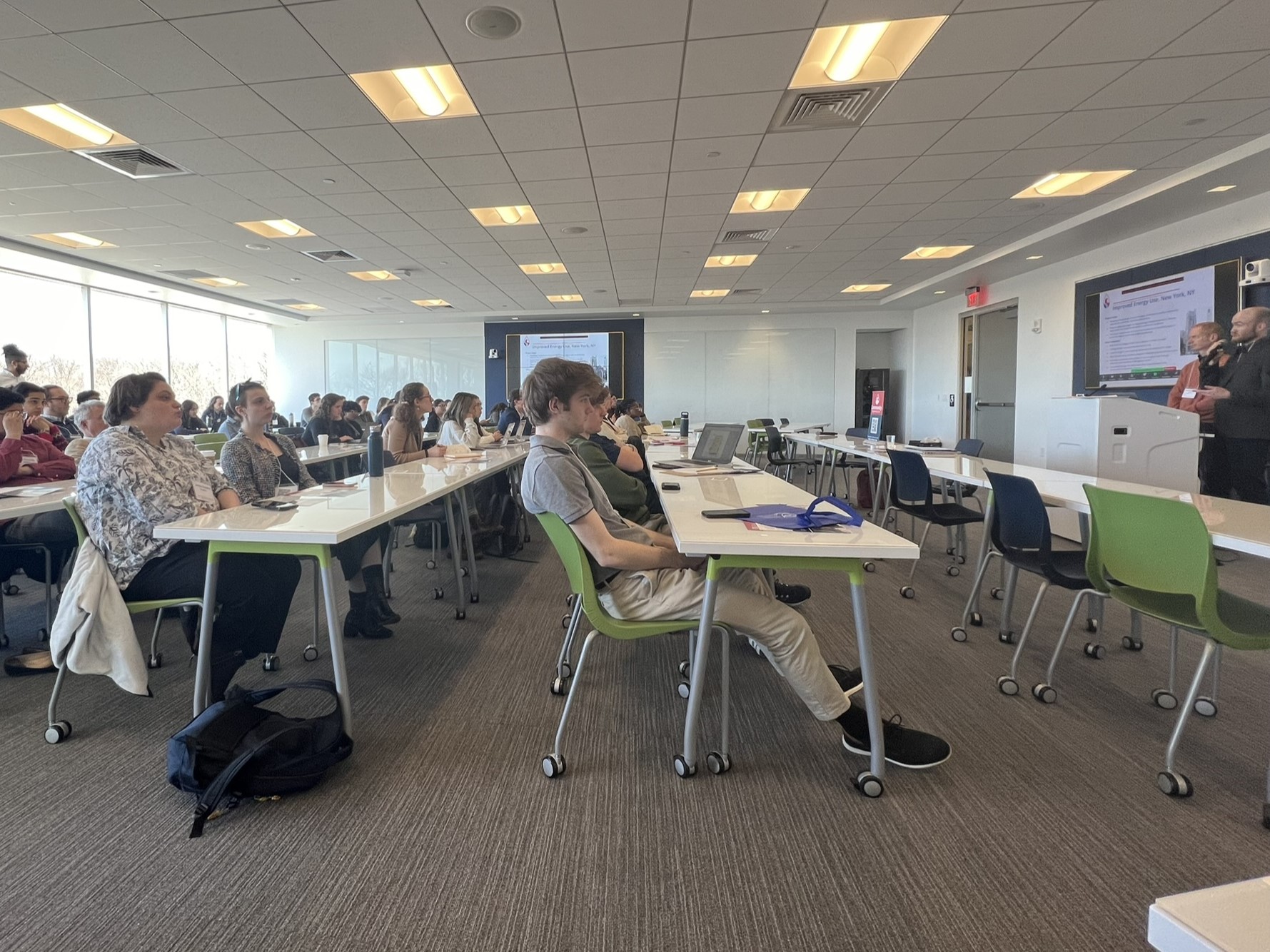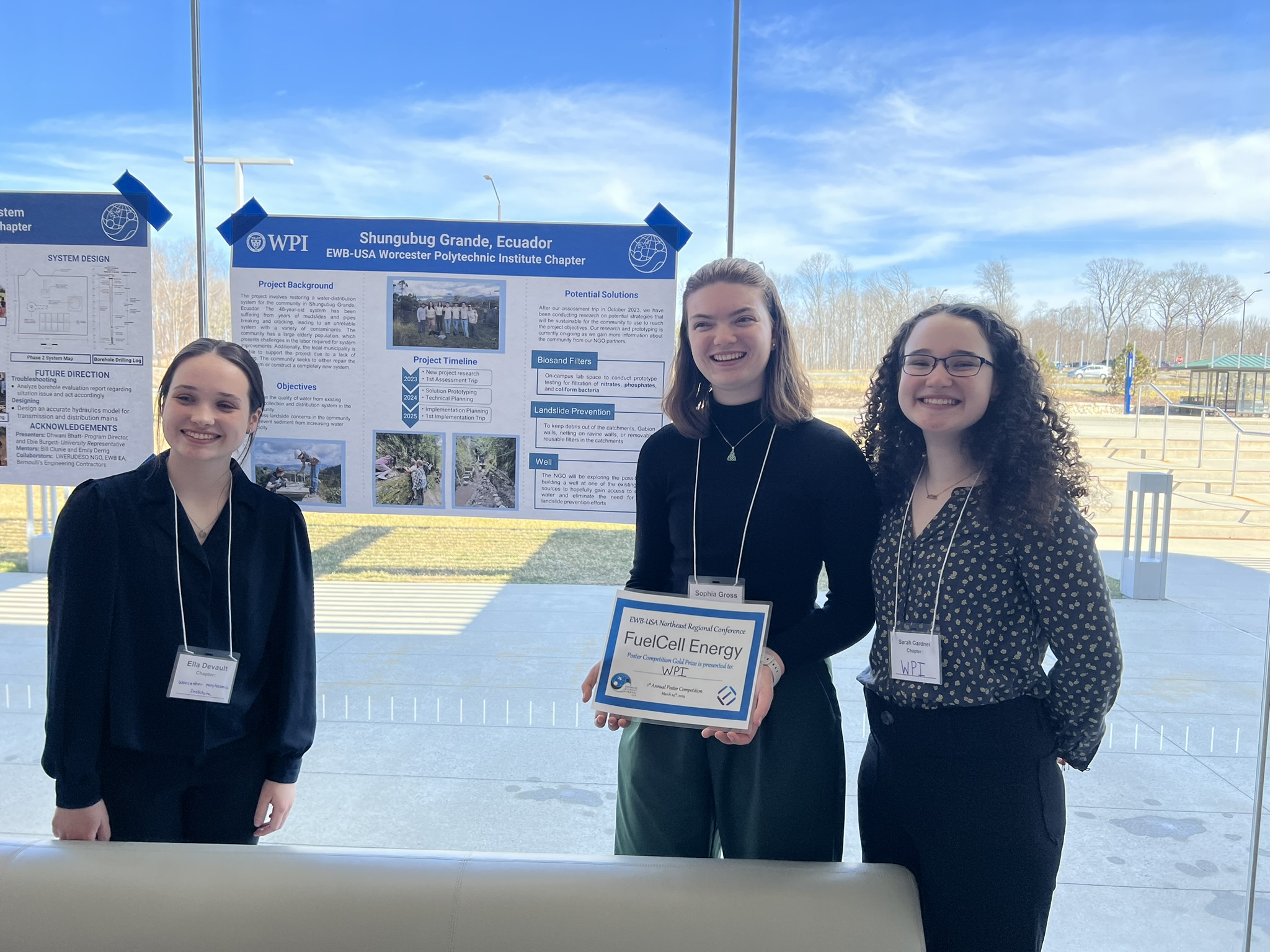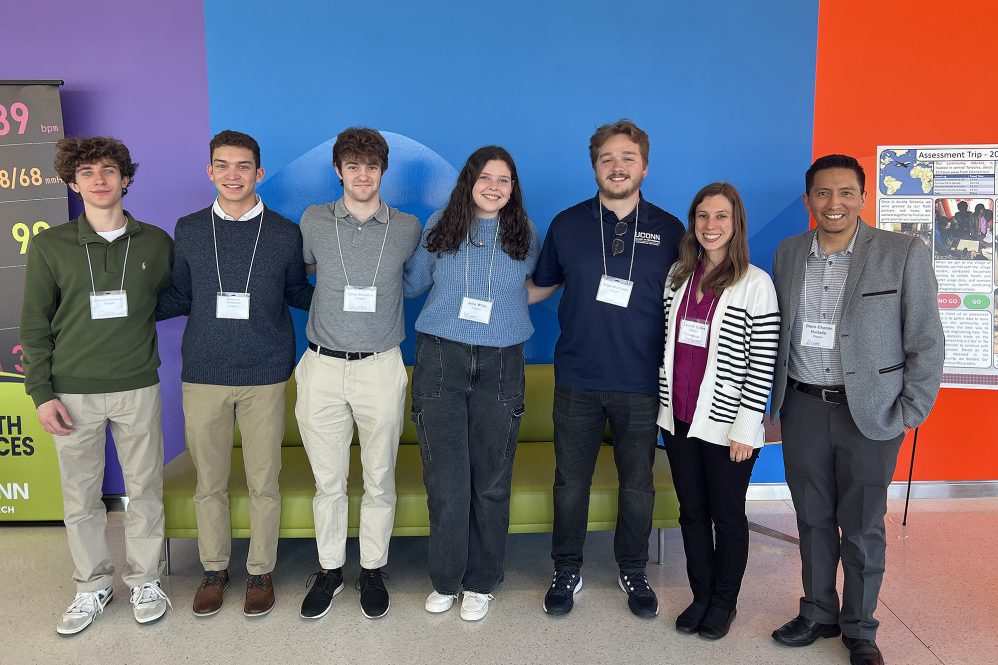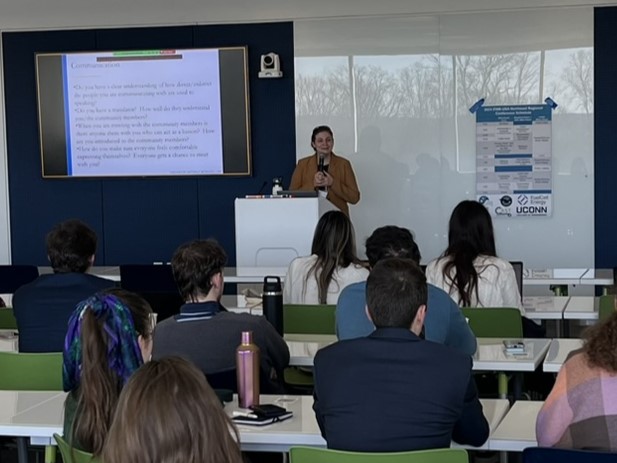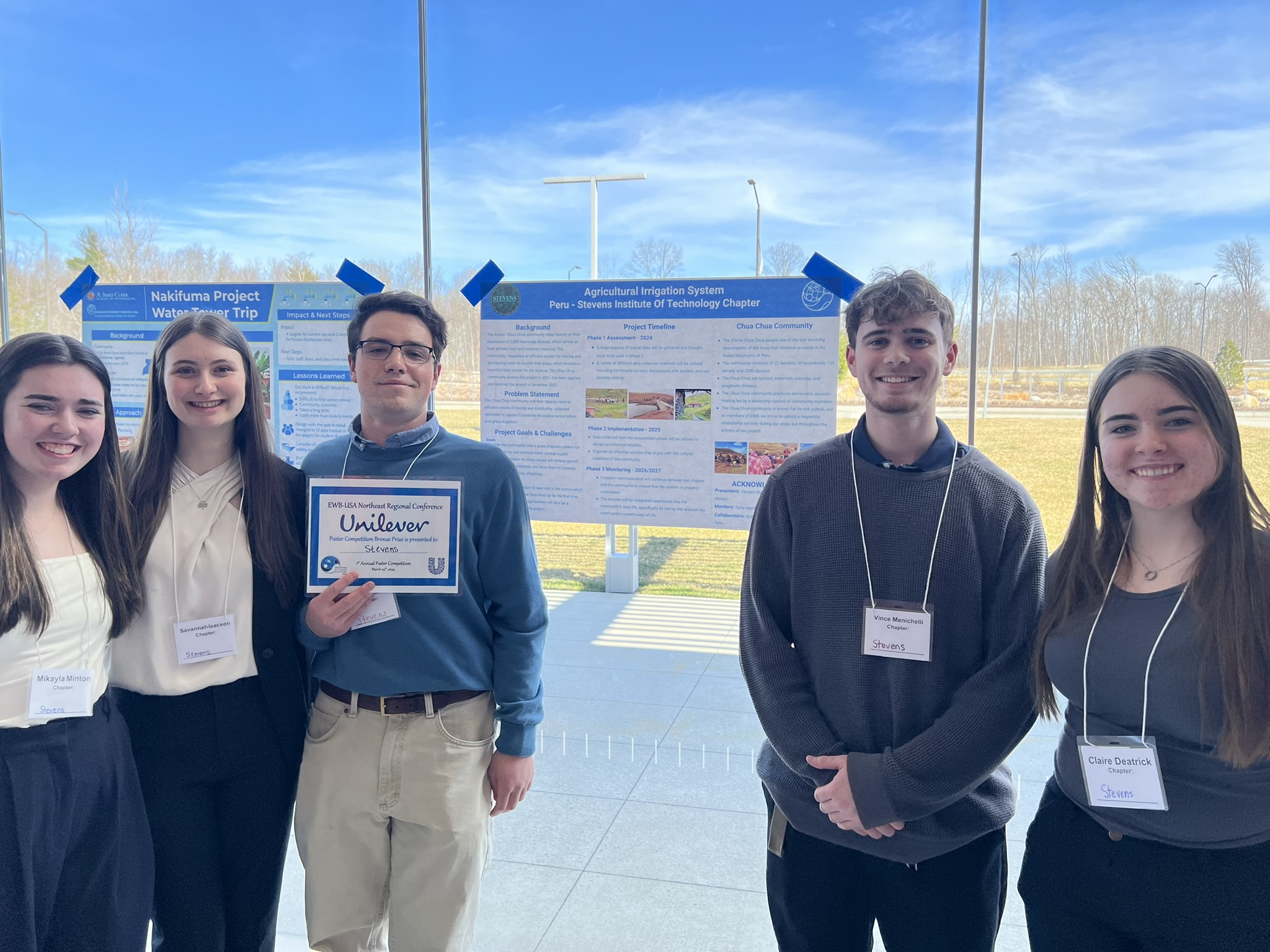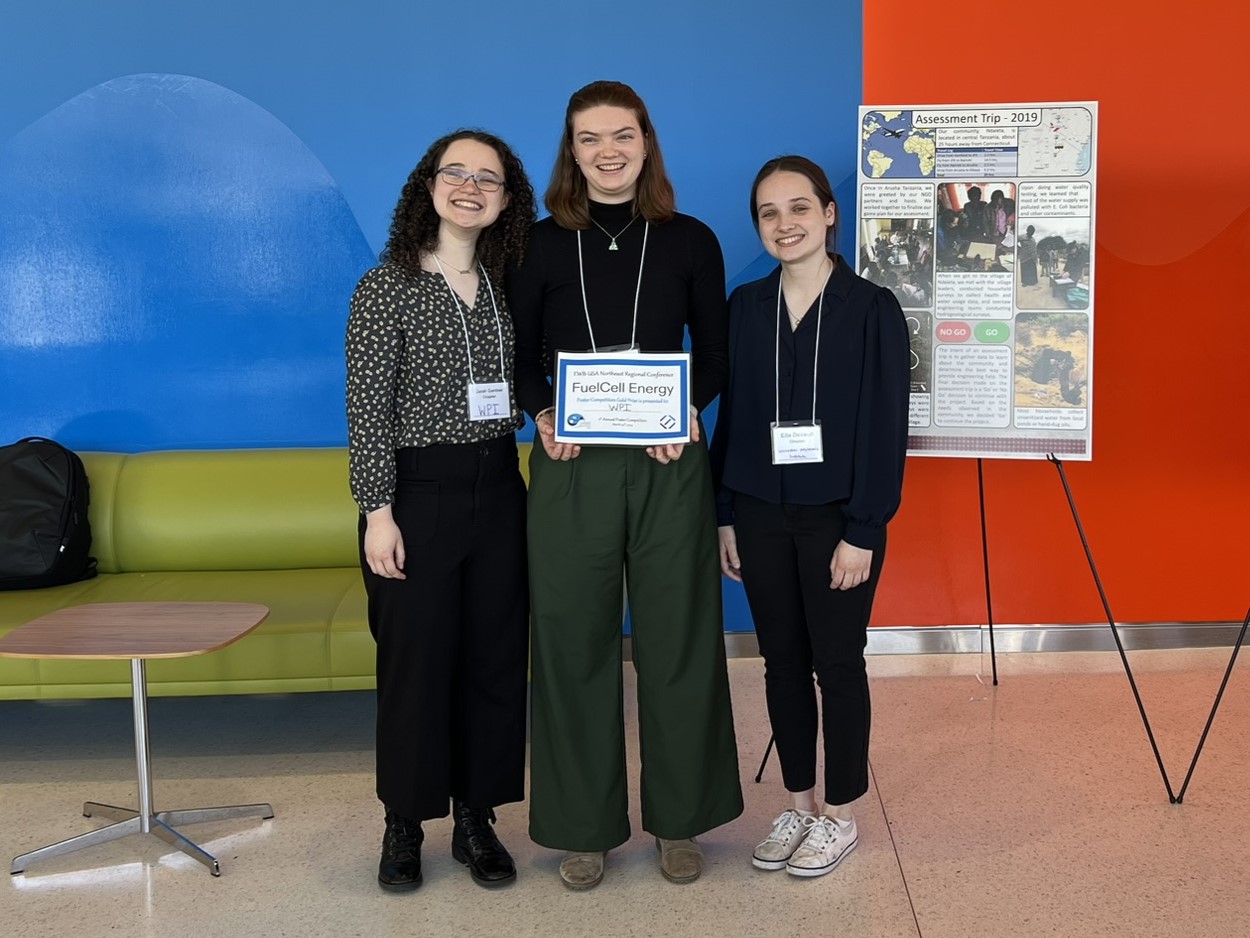Partnership
Engineering Takes Flight at Connecticut Manufacturing Simulation Center
Exploring the Future of Digital Twins in Manufacturing
 On November 12–13, 2024, UConn’s Pratt & Whitney Institute for Advanced Systems Engineering (PW-IASE) brought together researchers, industry leaders, and practitioners for the Workshop on Digital Twins for Manufacturing, held at the Innovation Partnership Building at UConn Tech Park. Hosted in collaboration with the U.S. Department of Energy (DoE) and the National Science Foundation (NSF), the event served as a global platform to explore the transformative potential of Digital Twin (DT) technologies in modern manufacturing.
On November 12–13, 2024, UConn’s Pratt & Whitney Institute for Advanced Systems Engineering (PW-IASE) brought together researchers, industry leaders, and practitioners for the Workshop on Digital Twins for Manufacturing, held at the Innovation Partnership Building at UConn Tech Park. Hosted in collaboration with the U.S. Department of Energy (DoE) and the National Science Foundation (NSF), the event served as a global platform to explore the transformative potential of Digital Twin (DT) technologies in modern manufacturing.
Participants engaged in a dynamic exchange of ideas through keynote presentations, interactive panels, and collaborative working sessions. The workshop’s agenda was designed to address pressing challenges and opportunities in manufacturing, with a focus on the development and application of DTs—virtual models that mirror physical systems to optimize products, processes, and production throughout their lifecycle.
Digital Twin technologies are revolutionizing how manufacturers approach design, production, and maintenance. By enabling real-time data integration and predictive analytics, DTs support informed decision-making and proactive solutions, critical for industries navigating the complexities of modern supply chains and innovation demands. “As the manufacturing sector evolves, DTs provide critical tools for innovation, enabling real-time data integration, predictive analytics, and proactive decision-making,” noted Dr. George Bollas, associate dean of Research for UConn’s College of Engineering and director of PW-IASE.
The workshop tackled key themes, such as improving system efficiency, enhancing resilience, and leveraging DTs for sustainability in manufacturing. Notable speakers and panelists represented a wide array of expertise, from academic research to practical applications in aerospace, defense, and energy sectors. Participants worked toward actionable outcomes, including drafting a strategic roadmap to guide the future development of DT technologies and fostering collaborations across academia, industry, and government.
By hosting this event, UConn reaffirmed its position as a leader in advancing cutting-edge manufacturing technologies. The workshop highlighted Connecticut’s rich industrial heritage, particularly in aerospace, defense, and shipbuilding, while showcasing how innovations like DTs will shape the future of these sectors.
The Workshop on Digital Twins for Manufacturing not only provided a forum for sharing knowledge but also underscored the importance of interdisciplinary collaboration in driving technological progress. As digital twins continue to mature, they hold the promise of transforming manufacturing into a more agile, efficient, and sustainable industry.
Fostering Innovation at UConn: The Nursing and Engineering Innovation Center
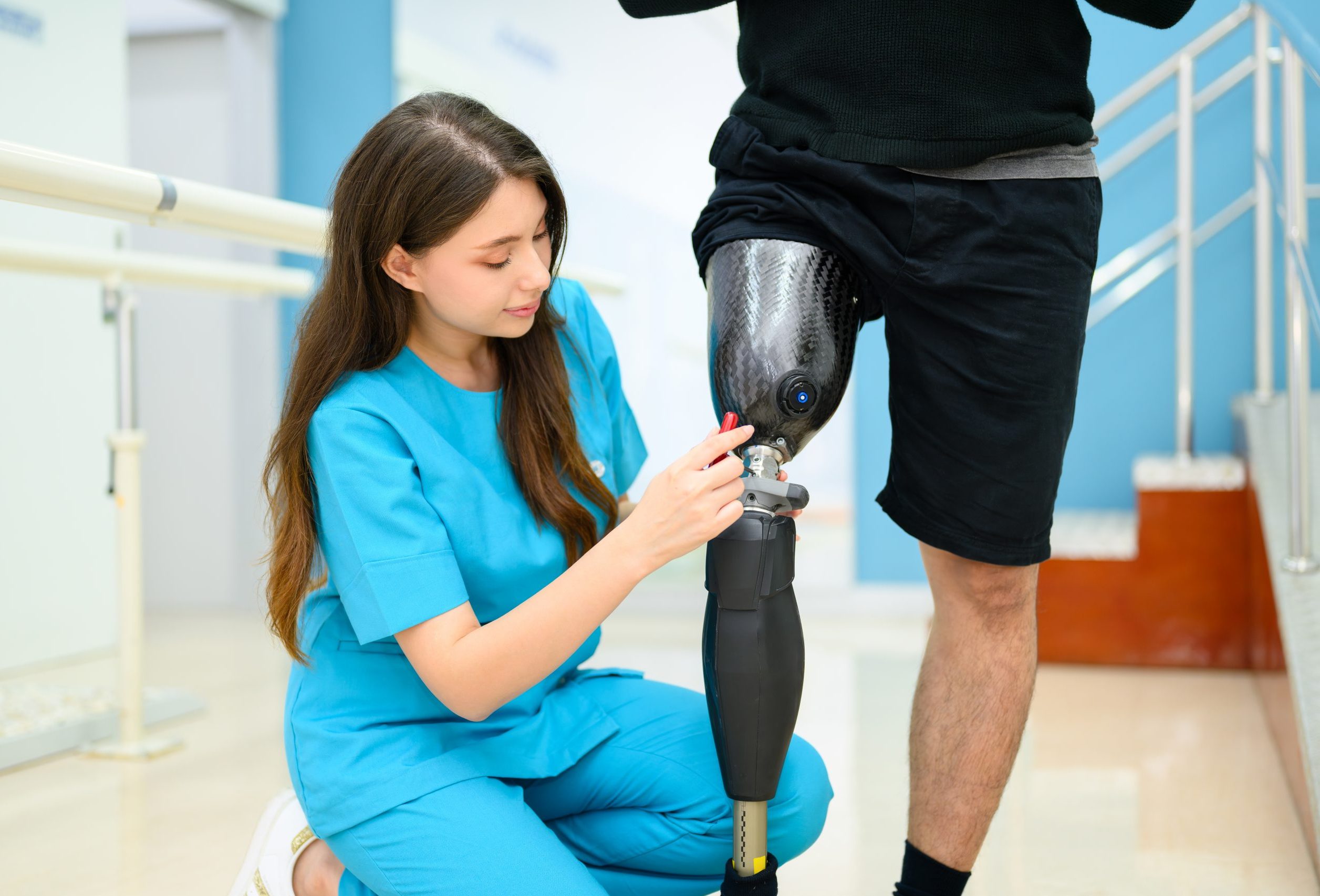 The Nursing and Engineering Innovation Center at UConn Tech Park is spearheading transformative healthcare solutions through interdisciplinary collaboration. By uniting the expertise of the School of Nursing and the College of Engineering, the center aims to drive the creation and commercialization of evidence-based healthcare technologies.
The Nursing and Engineering Innovation Center at UConn Tech Park is spearheading transformative healthcare solutions through interdisciplinary collaboration. By uniting the expertise of the School of Nursing and the College of Engineering, the center aims to drive the creation and commercialization of evidence-based healthcare technologies.
One of the center’s notable initiatives was showcased during the Spring 2024 Technology Innovation and Entrepreneurship (TIE) course, led by co-Director Dr. Leila Daneshmandi and Professor Sam Nanayakkara. For the first time, the TIE courses included nursing students, emphasizing the center’s mission to integrate diverse fields for innovative outcomes. This collaboration resulted in student venture presentations including Green Grid Farms, Puppy Palace, Transplant Rescue, KLAD, eKardia, and Alevia Pharma OraSpray.
The final pitch day on April 22 highlighted these projects, judged by a panel of faculty, staff, and students professionals, including Engineering Associate Dean Leslie Shor and Nursing Visiting Professor and Nursing & Engineering Innovation Center co-director Tiffany Kelley. Dr. Daneshmandi commended the students for their dedication in building technology-enabled ventures aimed at driving significant change.
The event also featured presentations from young inventors in the K-12 space, courtesy of the Connecticut Invention Convention, and showcased top student ventures like ParticleN, Genesist, and Toribio Labs Zemi Platforms. These presentations underscored the continuous impact of the TIE courses and the broader entrepreneurial initiatives at UConn.
The Nursing and Engineering Innovation Center aims to foster healthcare, workforce, and economic development through research, education, community engagement, and technology transfer. By combining clinical nursing knowledge with engineering expertise, the center is poised to create healthcare technologies that address clinical unmet needs and improve healthcare quality. The involvement of registered nurses, the largest group of healthcare professionals, is pivotal in developing and evaluating new technologies.
The Nursing and Engineering Innovation Center, led by Tiffany Kelley and Leila Daneshmandi, exemplifies UConn’s dedication to interdisciplinary collaboration and innovation. For more information about the center’s initiatives visit the Nursing and Engineering Innovation Center website. To learn more about the TIE courses, visit the Entrepreneurship Hub (eHUB) website.
New England Security Day 2024
On March 15th, the Innovation Partnership Building hosted New England Security Day 2024 (NESD), featuring cutting-edge cybersecurity research by experts from academic and professional backgrounds. Participants included industry professionals and academic institutions such as Boston University, Brown, Harvard, UMass, MIT, Northeastern, WPI, and Yale. Attendees had the opportunity to learn about the latest advancements in technology and network for potential collaboration and employment prospects. The conference welcomed a diverse audience of professionals, academics, and graduate and undergraduate students interested in cybersecurity, regardless of their familiarity with advanced concepts like fuzzers, machine learning methods for intrusion detection, or efficient post-quantum cryptography.
Visit the NESD 2024 web page for additional information and to view the NESD 2024 video, complete event program and additional photos.
Engineering for Global Impact: Highlights from the Engineers Without Borders 2024 Northeast Regional Conference
The Engineers Without Borders (EWB) 2024 Northeast Regional Conference, hosted at UConn’s Innovation Partnership Building in March, brought together over 100 engineering students, professionals, and faculty advisors. Participants engaged in technical sessions, workshops, and professional development activities. EWB-USA, a nonprofit organization, supports community-driven engineering projects globally, with 155 chapters nationwide, including 42 in the northeast.
Attendees included special guests hydrogeologist Nadia Glucksberg and geologist-environmental scientist Helena Hollauer, along with Community Engineering Corps, an EWB partner organization that helps U.S. communities lacking engineering services. A full-day poster session showcased attendees’ recent projects, and EWB-UConn discussed their sanitation and sustainability initiatives in Peru and Kenya.
“The conference brought together students and professionals that want to use engineering to make the world a better place for more people,” says Jeffrey McCutcheon, Centennial Professor in the Chemical and Biomolecular Engineering Department. “It’s a very important change in the way that engineering is perceived, and I believe better addresses the interest of our next generation of engineers.”
EWB-UConn President Brian Machado’25 (ENG) praised the turnout and camaraderie among chapters, reflecting a shared commitment to engineering for global betterment.
Read the full article here.
Pratt & Whitney Additive Manufacturing Center Expands Defense Research
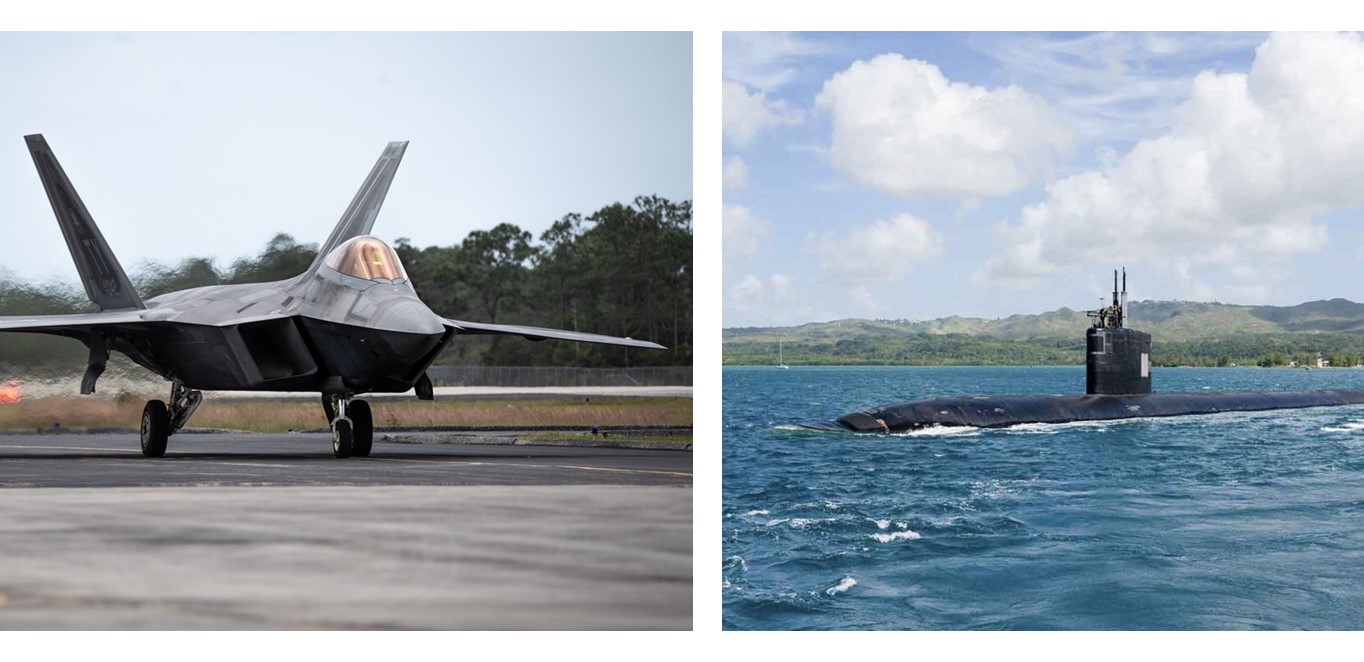 The Pratt & Whitney Additive Manufacturing Center (AMC) at UConn Tech Park has expanded its Department of Defense-related research efforts in recent months with new projects related to submarine and aerospace manufacturing.
The Pratt & Whitney Additive Manufacturing Center (AMC) at UConn Tech Park has expanded its Department of Defense-related research efforts in recent months with new projects related to submarine and aerospace manufacturing.
The submarine industrial base hopes to meet the demand for quality submarine parts by focusing increasingly on additive manufacturing. A team of UConn materials science and engineering faculty along with colleagues from the University of Rhode Island recently started a four-year project funded by the National Institute for Undersea Vehicle Technology (NIUVT) to investigate properties of a steel commonly used in submarine production. The team will explore the material characteristics of parts made of this steel using additive manufacturing as compared to traditional manufacturing technologies such as castings and forgings.
The AMC supports the additive manufacturing aspects of the project that include powder characterization as well as chemical and thermal analysis besides the production of parts. In its newest NIUVT-funded project the AMC will exploit the layer-by-layer manufacturing approach of additive manufacturing to tailor the behavior of bronze materials at specific locations within a part. What is nearly impossible with castings can likely be accomplished with additive manufacturing, for example, to optimize sections of parts for high strength while other regions bear the brunt of energy absorption during service.
The NIUVT additive manufacturing projects and the AMC involvement echo parallel efforts by the Navy to develop an industrial base for additive manufacturing of submarine parts. To this end, the Navy set up an additive manufacturing Center of Excellence in 2022 and in the same context invited researchers from seven US universities to form an academic consortium.
The AMC is part of the consortium and will soon embark on its first project and address the important aspect of metal powder characteristics. Key additive manufacturing technologies use metal powder, and a detailed knowledge of the powder characteristics and flow behavior is needed to advance additive manufacturing to a production level.
Similarly, the Air Force pursues additive manufacturing for some of their current and future systems, particularly in high-temperature applications. Recently, the AMC started a new four-year project sponsored by the Air Force Research Laboratory (AFRL) on refractory metals for additive manufacturing of high-temperature components. Refractory metals such as niobium have melting points well over 4,000 degrees Fahrenheit but have been difficult to produce with conventional manufacturing technologies. The AMC will investigate process conditions during additive manufacturing and their effects on the details of the niobium metals that matter for their use in high-temperature applications.
With the NIUVT, Navy, and Air Force research activities, the AMC supports some of the most critical applications for the nation and in the process prepares students with expertise in state-of-the-art manufacturing technologies.
UConn Leading Federally Backed Regional Initiative to Defend Electric Grid from Cyberattack
NIUVT-UConn Welcome Congressman Joe Courtney and Mr. Paul Myler, Embassy of Australia Deputy, for AUKUS Partnership Briefing
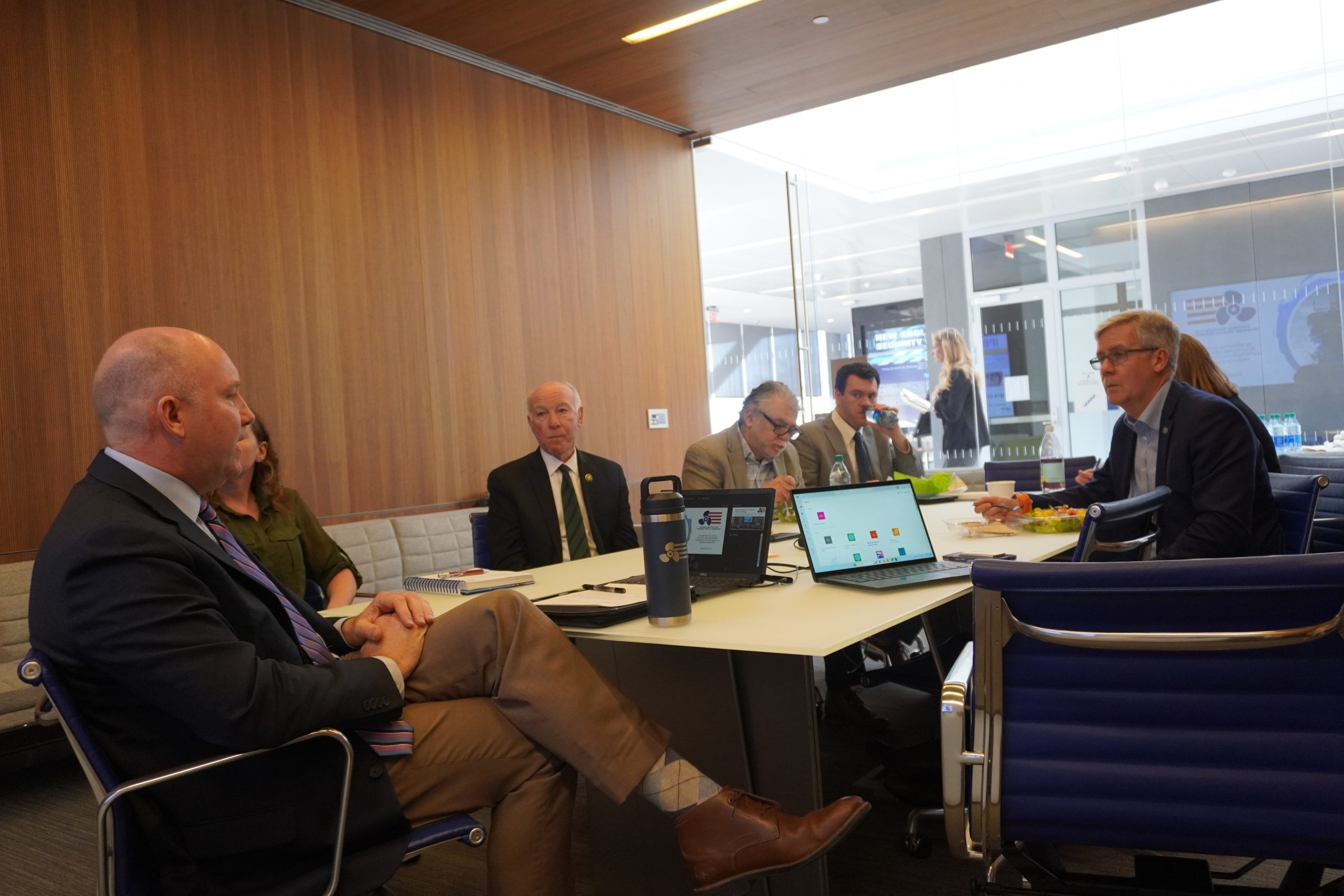 On Thursday March 14th, the National Institute for Undersea Vehicle Technology (NIUVT), together with the UConn College of Engineering, welcomed Congressman Joseph Courtney and Mr. Paul Myler, Deputy Head of Mission for the Embassy of Australia Washington DC, to the Innovation Partnership Building. Congressman Courtney and Mr. Meyer were briefed on UConn NIUVT leadership’s recent visit to Australia, where they engaged with government and academia regarding mutual interests and opportunities to partner in research and workforce development opportunities available because of AUKUS, the trilateral partnership between the United States, Australia, and the United Kingdom.
On Thursday March 14th, the National Institute for Undersea Vehicle Technology (NIUVT), together with the UConn College of Engineering, welcomed Congressman Joseph Courtney and Mr. Paul Myler, Deputy Head of Mission for the Embassy of Australia Washington DC, to the Innovation Partnership Building. Congressman Courtney and Mr. Meyer were briefed on UConn NIUVT leadership’s recent visit to Australia, where they engaged with government and academia regarding mutual interests and opportunities to partner in research and workforce development opportunities available because of AUKUS, the trilateral partnership between the United States, Australia, and the United Kingdom.
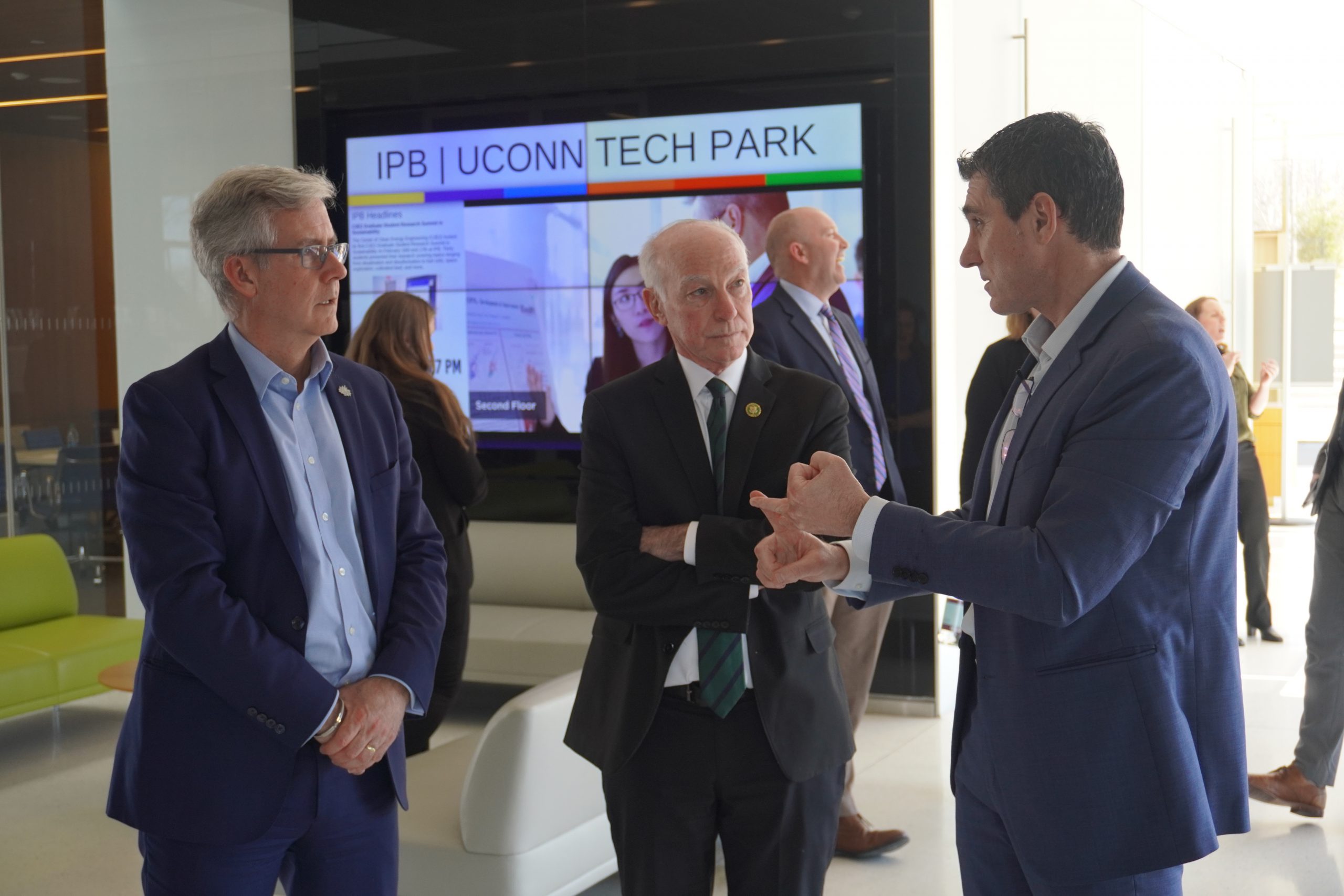 |
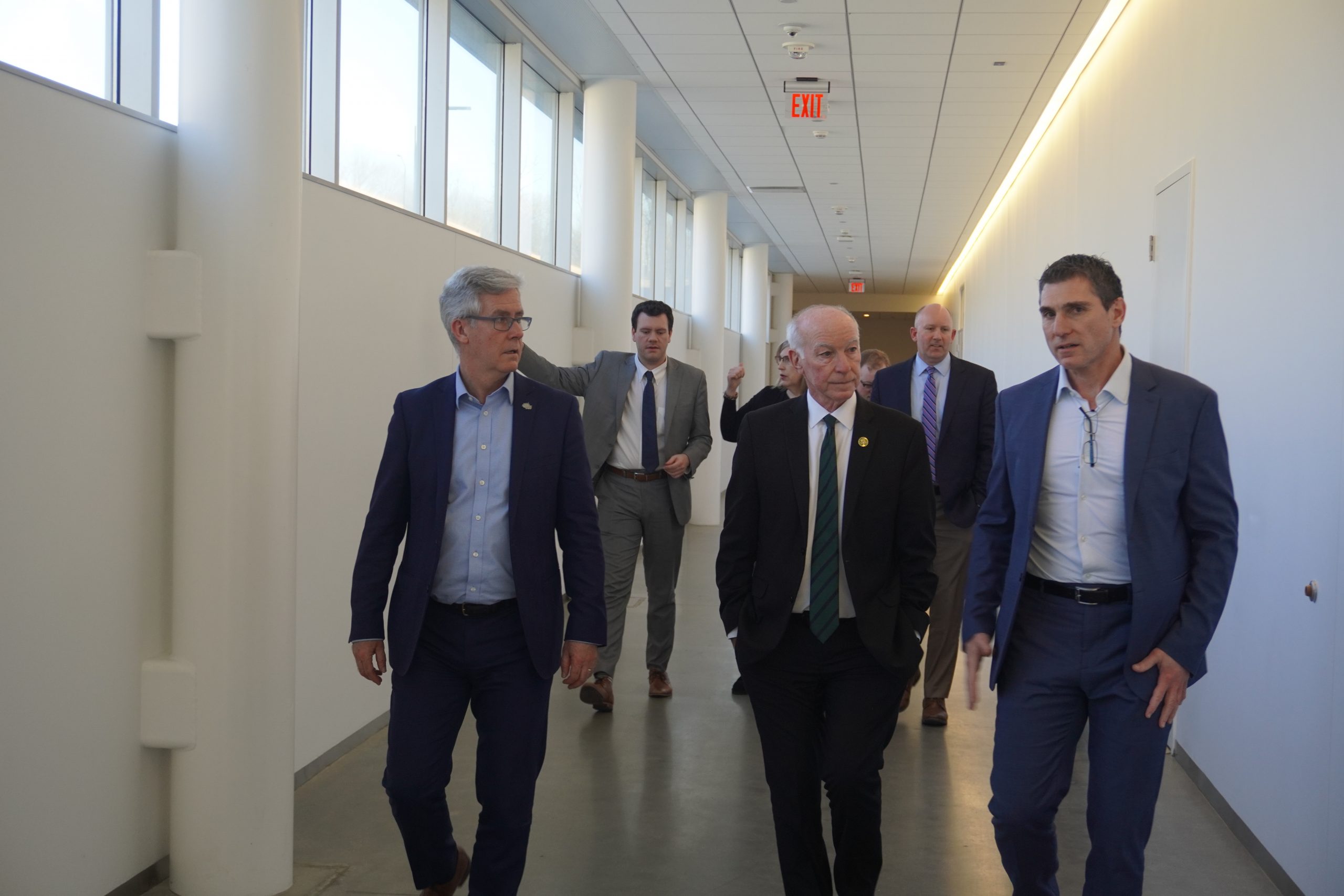 |
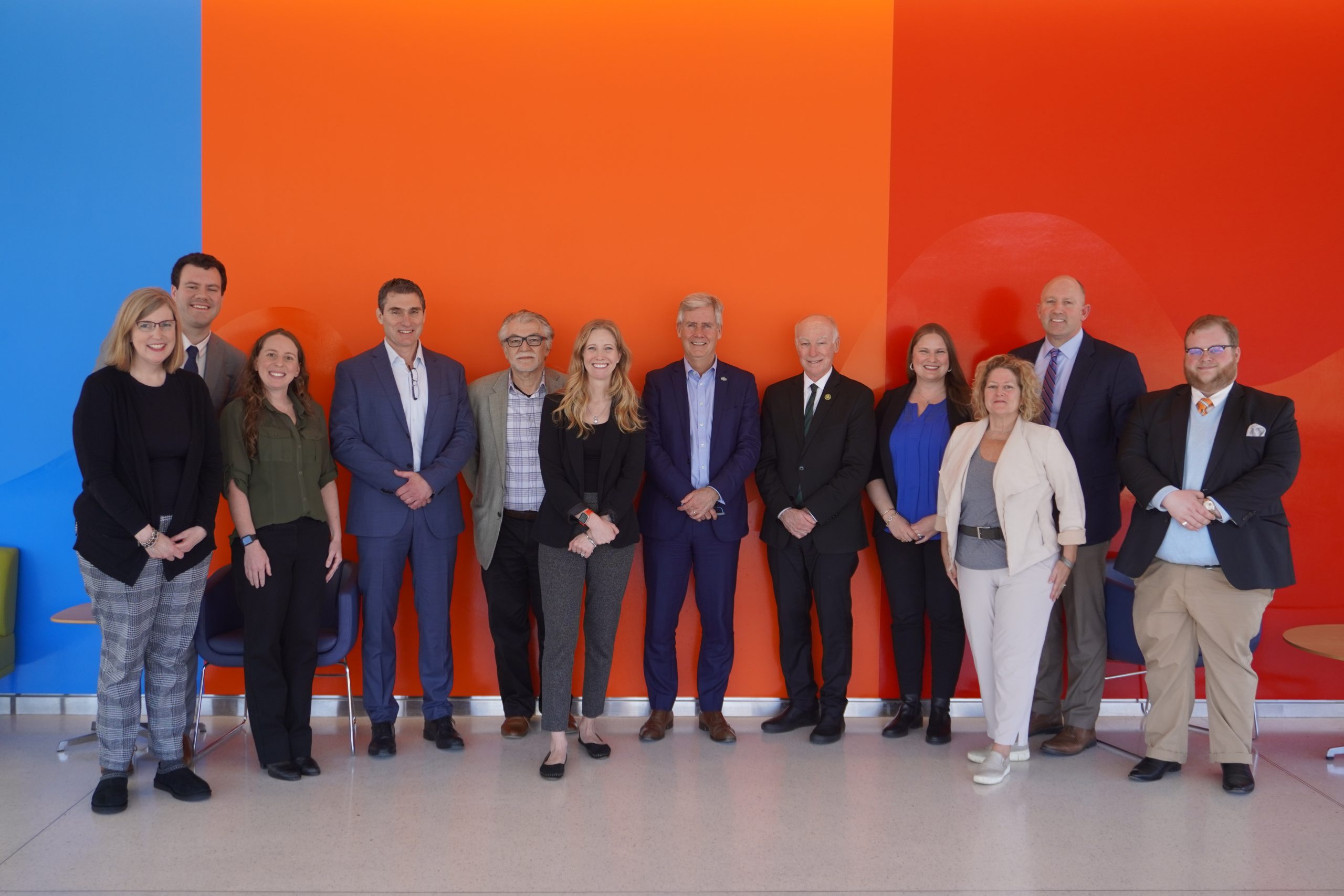
Moving Beyond Implications: Research into Policy Inaugural Conference
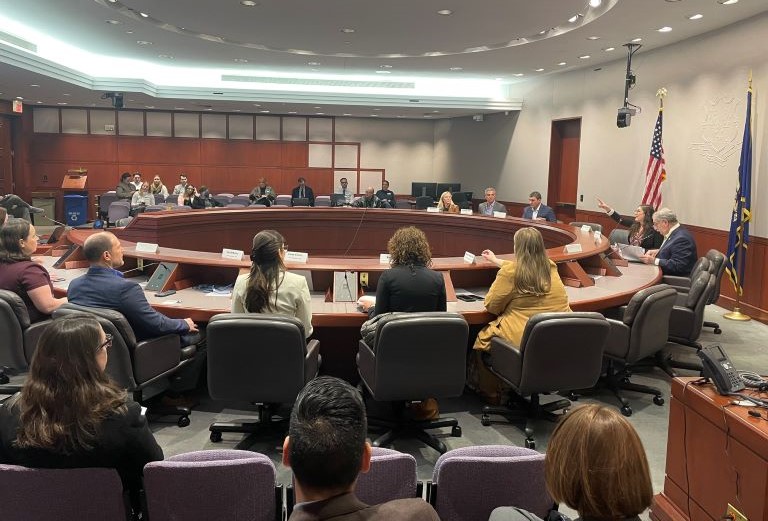
UConn Tech Park responded to a call for researchers to shape policies that optimize benefit to Connecticut’s communities, environment, and economy. Interim Executive Director Emmanouil Anagnostou and Professor George Bollas, along with other researchers and academicians, participated in the inaugural “Moving Beyond Implications: Research into Policy” conference at the State Capitol. This event fosters collaboration between policymakers and researchers, promoting evidence-based policymaking in the state. Anagnostou and Bollas presented topics related to the impact of extreme rainfall on water infrastructure and non-carbon-based fuels, respectively, contributing to the dynamic discussion on how scientists can inform future policy decisions for impactful results.
Check out the UConn Today article, “Conference to Unite Legislators and Scientists in Joint Effort to Strengthen Connecticut” for additional details on the conference’s objectives and background.
Co-organizers State Rep. Jaime Foster and Kerri Raissian provide post-conference commentary in the CT Mirror article, “For progress, put Connecticut lawmakers and researchers in the same room.”
